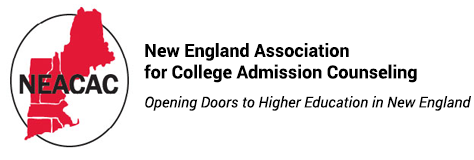Educational Programming
Your colleagues are hard at work developing sessions for you to take advantage of in June! See below for a sneak-peek!
AMC 2022 Educational Programming Examples:
-
Black Students and the College Admission Process
How are you considering the needs of your Black students? From their forthcoming book, The Black Families Guide to College Admissions: A Conversation about Education, Parenting, and Race. Senior Associate Dean of Admission at Emory University Tim Fields and college admission expert, Shereem Herndon-Brown, share insights on how school counselors and Black families should to approach the ever-evolving college admission landscape as it pertains to HBCUs, PWI's, and cultural understanding surrounding diversity equity and inclusion.
-
When the Crystal Ball Is Cloudy: Counseling Amidst Uncertainty
Under ideal conditions, college counseling programs are dynamic; with intention, counselors lead students and families through an experience of reflection and growth as they move toward post-secondary education. The constraints of the pandemic have driven many of us to auto-pilot mode just to get by. Join us for a roundtable discussion to hear how counseling colleagues have adapted to both foreseeable and unpredictable factors within admissions: where have we found success, what can we leave behind, and how can we best prepare for what lies ahead?
-
Personalize the Path to College through Precise Early Engagement
The looming demographic cliff is forcing college admissions offices to re-strategize. As the number of high school graduates decreases and initiatives to diversify incoming classes continue to increase, high schools and colleges can work together to rethink communications to prospective students. Plus, we will examine how early, personalized engagement supports students’ college-going ambitions and application decisions, thanks to incentives and nudges. We’ll highlight how colleges and high schools can engage students as early as 9th grade.
-
"To ED or not to ED: A successful multi-year program for first generation college-goers"
In this session participants will learn how one school implemented an early decision awareness program and receive tools and resources to engage in similar programming at their own institutions or organizations.
-
Digital Trends you Cannot Ignore
The digital landscape is changing constantly and at warp speed and institutions not staying up with the trends are falling behind their competition. In this session we will explore macro digital marketing trends that every higher education marketer should know and embrace. From Artificial Intelligence and Smart Speakers to OTT and Chatbots, we’ll discuss what marketing trends you should consider now and in the future. From this session you will walk away with not only the heavy hitting top trends but see meaningful examples on how you can incorporate these trends into your marketing execution and stay one step ahead of the competition.
-
(Not) Born in the USA: Supporting Students & Their Non-American Born Parents
Approximately one-third of students enrolled in US universities are from immigrant families. College access and affordability for students in immigrant communities is more critical than ever, but families across the economic spectrum find it difficult to speak “admissions.” What effective practices can help overcome the unique challenges and barriers they encounter? Experienced counselors will present strategies that work. Bring your ideas and programs to share as we discuss how we can collaborate across the desk.
-
Admission and the Non-Traditional Student
The Finish What You Started program at the University of Rhode Island has been supporting non-traditional students for over 10 years. Working with adults learners is rewarding and requires an individual approach to admissions. Come learn strategies that have helped build a successful program at URI.
-
Path to Persistence: Supporting First Generation Students To The Finish!
First generation students are more likely to come from under-served backgrounds and therefore less likely to persist in their education. This session will give background on first-generation student struggles and advice to educators on both sides of the desk to implement in their work with first-generation students. Together, we can help first-generation students find their right college fits and achieve academic and social success in college and beyond.
-
Spring High School Admissions Visits - A Case Study
Is the fall of senior year too late to hold high school admissions visits? For the first time, Westborough HS (MA) shifted its college visit schedule from the fall of senior year to the spring of junior year. Join us to learn how our spring visit schedule went, the benefits and drawbacks from both the high school and college perspective, and data collected from over 100 colleges across the country about their spring visit plans.
-
Making the Higher Education Lexicon accessible to Underrepresented Students
In creating a college going culture in your counseling practice, consider the language, and names of offices and programs students will need to access on a college campus. In this session, let’s think beyond college acceptances, and brainstorm ways to provide helpful tools for underrepresented students.
-
So you want to become an Independent Counselor
The growing demands on high school counselors and college admissions counselors are leading many of you to consider other possible ways to do meaningful work with students. This session will explore how to make the transition from school/admissions counselor to independent counselor; the pitfalls, challenges, and rewards.
-
The Future of Financial Aid
Financial Aid is always changing (more than ever in 2023) and college costs are always rising. We want to empower guidance/college counselors with education and resources to make sure they can guide their families to an affordable college path. In our experience it is very difficult for high school counselors to provide scalable, specific guidance to their families. We have unlocked a platform and curriculum to support this and want to make sure everyone is aware.
|
